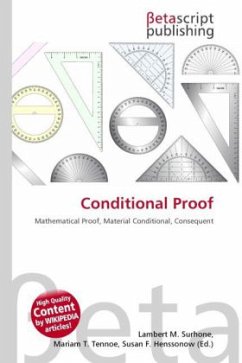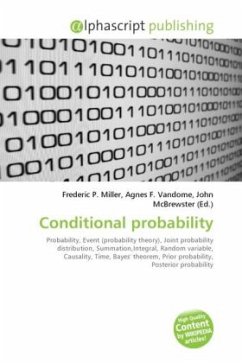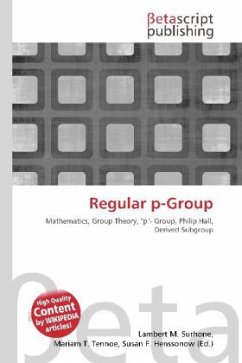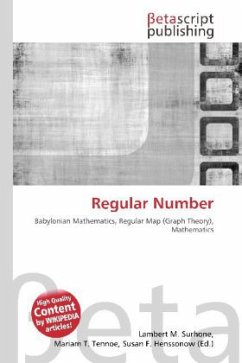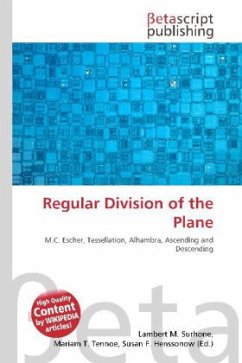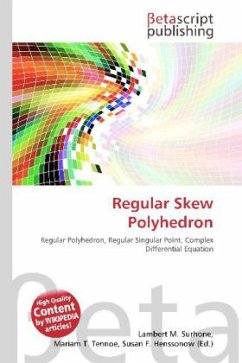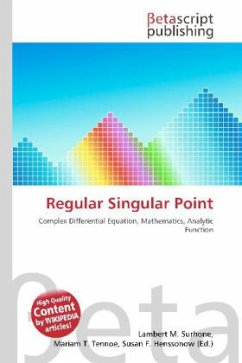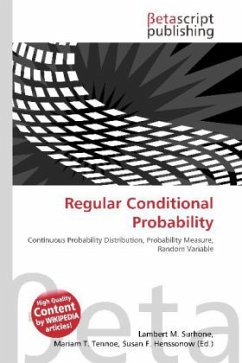
Regular Conditional Probability
Versandkostenfrei!
Versandfertig in 6-10 Tagen
19,99 €
inkl. MwSt.

PAYBACK Punkte
10 °P sammeln!
Please note that the content of this book primarily consists of articles available from Wikipedia or other free sources online. Regular conditional probability is a concept that has developed to overcome certain difficulties in formally defining conditional probabilities for continuous probability distributions. It is defined as an alternative probability measure conditioned on a particular value of a random variable. The difficulty with this arises when the event B is too small to have a non-zero probability. For example, suppose we have a random variable X with a uniform distribution on [0,1...
Please note that the content of this book primarily consists of articles available from Wikipedia or other free sources online. Regular conditional probability is a concept that has developed to overcome certain difficulties in formally defining conditional probabilities for continuous probability distributions. It is defined as an alternative probability measure conditioned on a particular value of a random variable. The difficulty with this arises when the event B is too small to have a non-zero probability. For example, suppose we have a random variable X with a uniform distribution on [0,1], and B is the event that X = 2 / 3. Clearly the probability of B in this case is P(B)=0, but nonetheless we would still like to assign meaning to a conditional probability such as P(A X=2/3). To do so rigorously requires the definition of a regular conditional probability.




